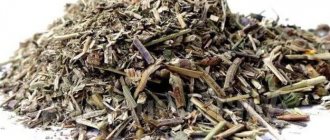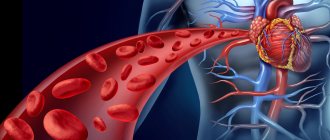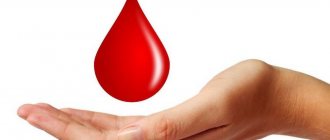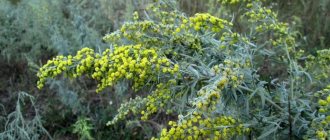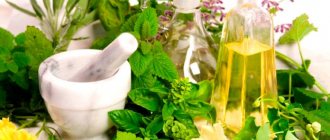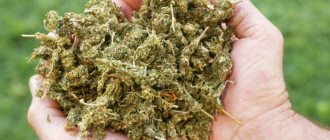Possible causes of blood thickening
Blood consists of liquid plasma and blood cells: red blood cells, platelets, and leukocytes. They determine its viscosity. If the blood flows too slowly, the red blood cells begin to stick together. Subsequently, they form blood clots that clog the blood vessels.
The balance of blood viscosity is disrupted when the number of blood cells increases or plasma volume decreases. This increased coagulability in medicine is called hypercoagulation. Thick blood itself is not a disease. However, if the blood flow condition is neglected, blockage of blood vessels can lead to irreversible pathological changes in internal organs.
Among the reasons causing blood thickening, doctors note:
- Lack of fluid in the body. Often accompanies intestinal diseases, infections and poisoning. Dehydration is caused by overheating, burns, or poor drinking habits.
- Lack of intestinal enzymes. They are necessary for complete digestion of food. When their quantity is reduced, water and electrolytes are lost in the intestinal area.
- Pathological disorders of lipid metabolism. They are a factor in the development of thrombosis due to increased levels of cholesterol and other difficult-to-remove fats.
- Lack of vitamins and microelements necessary for normal life.
- Radiation exposure. Occurs after being in an area exposed to radiation.
- Excess animal fats. They circulate in the plasma and reduce the sensitivity of insulin receptors. Glucose levels increase, which promotes the formation of blood clots.
- Diabetes. People with type I and type II disease are at risk.
- Lack of oxygen in the blood. Hypoxia develops with carbon monoxide poisoning and pulmonary failure.
- Liver dysfunction, cirrhosis.
- Polycythemia. When the disease occurs, the production of blood cells increases or the process of recycling dead elements is disrupted. May be caused by spleen failure.
- Malignant pathologies.
- Varicose veins and other diseases associated with venous blood flow.
- Antiphospholipid syndrome. The body begins to produce antibodies against its own cells. With prolonged exposure to antibodies, the functioning of platelets and blood vessels is disrupted, which leads to the formation of blood clots.
Lifestyle also affects blood flow. Doctors note that people with low activity are more likely to suffer from blood thickening. People with any degree of obesity, as well as those who abuse bad habits, are at risk. This includes smoking, drinking alcohol and using drugs. The effects of stress or psycho-emotional overload have an adverse effect on the body.
Simple folk remedies for blood thinning instead of aspirin
→ Home treatment → Body → Blood
Blood thinning is a definition that is absent in medicine; it is rather the prerogative of traditional medicine. It is necessary to make blood more liquid for people with high coagulability.
In the human body, blood performs a large number of functions: it transports carbon dioxide and oxygen, performs thermoregulation, and fills internal organs with the necessary microelements.
It is important that the plasma does not become too thick and viscous, as this leads to the development of serious diseases. Many people know how to thin the blood with folk remedies at home - take Aspirin.
But this drug has many contraindications, so it is better to take a closer look at other natural remedies (herbs, fruits, berries, plants).
To reduce the density of plasma, doctors have developed various drugs: anticoagulants, antiplatelet agents.
The former have a depressing effect on the coagulation system (Heparin, Warfarin), while the latter prevent the formation of blood clots and reduce platelet aggregation (Aspirin, Ticlopidine).
It should be remembered that you cannot prescribe medications for yourself, because all medications have many side effects. Tablets should only be taken under the supervision of a doctor.
Doctors agree that it is better to take folk remedies for blood thinning instead of Aspirin.
At home, they successfully use medicinal plants and food products that do not negatively affect the human body, unlike medications that have many contraindications and side effects.
Folk remedies for thinning the blood in the body work by increasing beneficial impurities and the liquid component - more oxygen and nutrients are supplied to the tissues and organs.
In some herbs, the content of coumarin, escin saponites and salicylates - substances that have an antithrombotic effect - is very high, so their use gives a quick therapeutic effect.
Plants that help thin the blood:
- white willow bark;
- medicinal sweet clover (burkun);
- roots of Caucasian Dioscorea;
- hazel bark and leaves;
- horse chestnut;
- lungwort;
- Ginkgo biloba leaves.
- Chestnut tincture (take a 3-liter jar, fill it less than half with chestnuts and add vodka, let it brew for 2 weeks and use a teaspoon 3 times a day).
- Cranberry tea (for one glass of boiling water, add 2 tablespoons of berries and let steep for about half an hour).
- Tincture of dandelion herbs and thorn flowers (a spoonful of each herb in a glass of boiling water, leave for half a day and take before meals).
- Tincture of mulberry root (pour a third of a jar of roots with alcohol and leave for 2 weeks in a dark place, consume 1 tsp before meals).
In addition to using tinctures and teas, it is recommended to add more fresh cucumbers, red bell peppers, red grape juice, seafood, garlic and melons to your usual diet to thin the blood with varicose veins. Also, you should make sure that enough fluid enters the body.
Now you know which folk remedies are used to thin the blood in the body instead of aspirin. However, using traditional medicine recipes, you should regularly monitor your blood condition, periodically taking tests. Large dosages, unsystematic administration, and overdose of blood thinners can be harmful to health.
Blood is the main living medium, the condition of which determines the health and level of functioning of absolutely all systems and organs. This living environment consists of 90% water, the remaining 10% consists of formed elements. If there is an insufficient supply of fluid into the blood or its digestibility is impaired, then the level of viscosity increases - a deterioration in a person’s health is guaranteed.
Medicine knows the reasons for increased blood viscosity, the first signs of this dangerous condition, and methods for thinning the blood. But everyone should have this information, because timely adoption of measures will help eliminate severe, complex pathologies that lead to death.
Blood diseases, including thick blood, can and most importantly should be treated using not only medications, but also remedies taken from traditional medicine, the superiority of which is primarily expressed in the low number of side effects and the absence of synthetic substances.
DETAILS: How to quickly raise (increase) blood pressure at home using folk remedies and tablets
When using substances extracted from plants and food to treat problems with blood density, it is important to first clarify whether they will not bring new problems with their side effects instead of the desired benefit. The reason for the negative impact of drugs made on prescriptions taken from traditional medicine may be the presence of other diseases, individual intolerance and a number of symptoms that can provoke a similar reaction in the body.
Traditional medicine offers many recipes to help solve the problem of thick blood. One of the effective remedies is ingestion of flaxseed oil. The course is thirty days. Take 1 tablespoon daily on an empty stomach. After a week's break, repeat the course. Eating ginger gives good results. Eat fresh or add powder to meals.
Herbalists recommend drinking the following teas made from medicinal plants:
- Tea for thinning and reducing blood clotting.
Thinning agents include:
- Medications;
- Certain foods;
- Medicinal plants (folk remedies);
First of all, it is necessary to normalize the intake of clean drinking water, because in moments of shortage the body begins to take it from blood cells and tissues, which subsequently thickens the blood. For good blood thinning, you should drink at least 1.5 liters of clean drinking non-carbonated water throughout the day.
The importance of water for the body
Fermented milk products liquefy, so consuming them regularly will reduce the risk of increased clotting.
And:
- Vinegar;
- Natural apple;
- Grape juice diluted with a little water.
Products containing polyunsaturated fatty acids strengthen blood vessels and increase their elasticity.
Which are contained:
- In olive oil;
- Halibut;
- Salmon;
- Mackerel;
- Or in special Omega vitamins (3, 6 or 9, or complexes 3-6-9).
Another name for them is fish oil. Performs all the same functions, but will cost much less than eating red fish every day.
Vitamin A - thins the blood, counteracts atherosclerosis.
Vitamin E – essential for the eyes, skin and liver, fights stress and nervous tension, plus cleanses the veins of blood clots and reduces the risk of blood clots.
Doctors also recommend consuming foods with magnesium, as it reduces the risk of blood clots and thins the blood.
Doctors agree that it is better to take folk remedies for blood thinning instead of Aspirin. At home, they successfully use medicinal plants and food products that do not negatively affect the human body, unlike medications that have many contraindications and side effects.
After 50 years, age-related changes begin to occur in the human body, which lead to aging. Atherosclerotic plaques accumulate in the vessels, the blood begins to thicken, causing all kinds of diseases. To prevent the development of the process, it is necessary to enrich the daily menu with products that are beneficial for the circulatory system.
- vegetables and fruits;
- nuts, seeds;
- corn;
- cocoa;
- seaweed;
- Brewed coffee;
- fish fat;
- oatmeal porridge;
- dark chocolate (cocoa more than 70%).
The effectiveness of herbal medicine
The properties of herbs, berries, fruits and vegetables are known thanks to traditional healers and individual doctors who use them in their practice. There have been no relevant clinical trials on the effectiveness of their action in blood thickening.
Medicinal herbs contain natural active ingredients that affect the body and thin the bloodstream. However, their concentration is insignificant compared to medications. That is why herbs for blood thickening are used only for prevention, and not for treatment. If there are serious blood flow disorders, you must contact official medicine.
Reviews
“I drank willow bark against the symptoms of vegetative-vascular dystonia. After a long course, the effect was noticeable, but very average. If the problem doesn’t bother you too much, you can treat it this way.”
“My mother has been suffering from atherosclerosis for a long time, so we decided to try meadow clover to cleanse blood vessels. The results of the treatment were noticed within a month. Now the mother undergoes clover therapy every year.”
In what cases can you get by only with folk remedies?
To thin the blood, herbal remedies containing salicylic acid are used. Herbal teas, decoctions and infusions prevent the formation of blood clots or slow down blood clotting.
Consumption of foods rich in taurine (seafood), arginine (nuts and grains), omega-3 (fish, oils), coumarin (berries), salicylates (citrus fruits, tomatoes) has a beneficial effect on thickening.
Taking herbs to thin the blood is prescribed for the primary signs of thickening. Plants are used when there are contraindications to medications. The amount of active substances contained in herbs is sufficient to provide a therapeutic effect.
Herbs that thin the blood and prevent blood clots
Both people with pathologies caused by thrombosis and those who are at risk need to ensure that the blood does not become viscous.
Important! An example of people who need prophylactic use of plasma thinners and anti-thrombosis agents are women who have nervous problems and take oral contraceptives.
Thinning the blood is important for women during pregnancy, as hormonal changes increase viscosity. This manifests itself in the lower extremities in the form of varicose veins and thrombosis. But at this time the range of permitted medications is limited. Therefore, you need to fight thick blood with the help of foods and herbs.
The undesirability of long-term use of anticoagulants (blood thinning medications) concerns all people, since there is a risk of adverse reactions: disturbances in the chemical balance of plasma, thinning of the mucous membranes of the gastrointestinal tract, ulcers with bleeding of the duodenum. Therefore, it is better to prevent the development of thrombosis using traditional methods. To do this, you need to know which herbs thin the blood.
Thyme
Another name for thyme is thyme. The plant prevents blood clots and blood viscosity, fights inflammation, spasms, pain and has a healing effect. They often give advice to use it for colds, kidney pathologies and insomnia. The main thing is that the herb is able to restore the circulatory system after an ischemic stroke (against the background of blood clots). Thyme can be used as tea or as a seasoning for dishes, thus strengthening the immune system.
But we must not forget about possible personal intolerance to thyme and avoid overdose: you can use the product for no more than 2 weeks. Thyme is contraindicated for: heart patients, people with stomach problems and pregnant women.
horse chestnut
Horse chestnut is considered one of the most effective for liquefying plasma, namely the brown peel containing saponosides, substances that prevent blood clots. Able to remove inflammation and spasms, constrict blood vessels. But the main advantage is considered to be a decrease in the viscosity and coagulability of lymph. To do this, 50 grams of peel with 0.5 liters of vodka are infused in the dark for 2 weeks. The medicine is taken three times a day, 25 drops half an hour before or after meals.
Taking horse chestnut tincture normalizes sleep and the body's response to weather conditions, eliminates tinnitus, adds strength and cleanses the body. The medicine is actively used for hemorrhoids, varicose veins of the legs, hypertension, as a prevention of thrombosis and decreased vascular tone.
willow bark
White willow (willow) bark, which is considered a natural aspirin tablet, is used in folk medicine as a blood thinner and anti-thrombotic agent. This is facilitated by tannins, acids and other useful trace elements that are effective in the treatment of cardiovascular diseases. They have anti-inflammatory, healing and antimicrobial effects.
White willow bark is usually collected in the spring, dried and used in this form to prepare decoctions or brew teas. For example: pour a tablespoon of crushed bark into a glass of boiling water and leave in a heat-insulating container (thermos) for at least six hours. Thanks to the salicylic acid found in the bark, there will be a high result in the prevention of thrombosis and blood thickening.
Use willow bark taking into account the tolerance of its constituent substances, contraindications and follow the recommended dosage. Teas with the plant will have less irritation on the gastrointestinal mucosa than a decoction, which is important for gastrointestinal pathologies.
Meadowsweet
As a folk drug that prevents blood clots, meadowsweet (meadowsweet) is used in the form of decoctions and teas. Consists of tannins, essential oils, fatty acids, vitamins and flavonoids. It has a strengthening effect on the body, increases the ability of the immune system to resist viruses and bacteria, and prevents seizures without being an allergen.
Meadowsweet prevents the accumulation of cholesterol, preventing strokes, strengthens the walls of arteries and counteracts varicose veins. And thanks to salicylic acid, which is part of the plant, the blood thins and the processes of thrombus formation slow down, large and small vessels become stronger. The remedy is prepared by infusing a teaspoon of herbs with a glass of boiling water for two hours. Take ¼ cup three times a day.
Nettle
In folk medicine, nettle has been known since ancient times as an effective blood thinner and anti-thrombosis agent. In addition, it is used to combat tumor processes in the body. The plant owes its medicinal properties to many microelements, acids and vitamins, the number of which is superior to carrots, black currants and oranges.
A complex of tannins and oxalic substances helps prevent blood clots, and acids and vitamins increase the concentration of hemostatic bodies in the blood. Taking nettle remedies increases the body's ability to resist viral and bacterial infections, prevents the occurrence of inflammatory processes and promotes cell regeneration. Clears toxins, increases hemoglobin levels and stimulates heart function. And the vitamin K content in the fresh plant will make the blood thinner.
The use of dry nettle products thickens the blood, increases coagulation and accelerates blood flow. Therefore, to dilute the plasma and prevent blood clots, it is necessary to use juices, leaves, shoots, decoctions and tinctures from fresh plants. To do this, 30 g of nettle is poured into 350-400 ml of boiling water and boiled for ten minutes, after which the cooled broth is taken up to five times a day, 1 tbsp. spoon.
The use of nettle as a means of preventing the formation of blood clots and blood thickening should be agreed with a specialist. Contraindications: thrombosis, varicose veins and signs of hypertension. The unique composition of the plant may cause individual rejection, so be careful when consuming it.
Sweet clover
Sweet clover, a biennial leguminous plant, helps prevent thrombosis and blood thickening. Counteracts inflammatory processes, seizures, sepsis and blood clotting. Plasma dilution occurs due to the coumarin contained in sweet clover, which stimulates the functioning of the entire cardiovascular system.
Folk medicines from sweet clover give good results in increasing blood pressure, improving blood flow by reducing viscosity in the main and peripheral vessels.
Ginkgo biloba
When using the ginkgo biloba plant, shoots are used to liquefy the plasma. Such remedies are prescribed by traditional medicine specialists and traditional healers.
The composition of ginkgo biloba allows you to expand the vascular lumen, clearing the walls of cholesterol plaques, and dilute the lymph to the required density. In addition, products from this medicinal plant have an anti-inflammatory effect.
Hazel
The bark and leaves of the hazelnut tree are used to thin the blood and prevent blood clots. The bark contains tannins, and the leaves contain ascorbic acid, which are indispensable in the prevention of hypercoagulation. Infusions and decoctions from the plant have a positive effect on blood vessels, relieve inflammation and pain caused by thrombophlebitis.
Dioscorea caucasica
Dioscorea Caucasica prevents thrombus formation and blood thickening. Its beneficial microelements have an antiallergic and analgesic effect, promote the discharge of bile, reduce plasma coagulability and have a diuretic effect. Decoctions of dioscorea are used as a lymph-thinning medicine.
In addition to the herbs listed above, dandelion, aloe, mulberry, wormwood and clover can resist blood viscosity and blood clots. It is allowed to prepare medicines from them both separately and in collections. But it is important to consult your doctor before taking herbal decoctions or infusions, since many plants have contraindications or risk causing individual intolerance. Of great importance for the effectiveness of treatment is the correct preparation of the products and the doses taken.
Additional effect of herbs
Medicinal plants have a number of beneficial properties for the body. In addition to normalizing blood flow, they are used for:
- Strengthening blood vessels. Meadowsweet, sweet clover, chestnut, white willow bark, Ginkgo biloba leaves, etc. are suitable. These herbs affect the walls of blood vessels and restore them. This is especially true for older people, since blood vessels lose their elasticity with age. The herbs are also suitable for people suffering from high blood pressure. Strong blood vessels will help prevent possible bleeding.
- Normalization of pressure. They use hawthorn, meadowsweet, black currant, hibiscus, and clover.
- Cleansing blood vessels from cholesterol. Sweet clover, chestnut, lungwort, roots of Caucasian dioscorea are suitable.
Herbal infusions from these plants have a beneficial effect on the heart, blood vessels, and help thin the blood.
Blood thinning during pregnancy
The interesting situation in women forces us to pay special attention when choosing products that thin the blood. Some tinctures, for example with alcohol, are strictly contraindicated, so you should know other folk remedies for thinning the blood during pregnancy. Here is a list of products, the consumption of which will not harm the health of the expectant mother:
- fresh tomatoes, you can eat in unlimited quantities;
- onions, cabbage, garlic, horseradish, mushrooms;
- berries: cranberry, sea buckthorn, viburnum, etc.;
- fruits with vitamin C: black currant, orange, lemon, dried apricots, pomegranate.
Contraindications and precautions
Before using herbs for blood thickening, it is recommended to consult a specialist. Independent use of decoctions is prohibited when:
- Pregnancy and during breastfeeding. The active substances penetrate the placenta or are passed through milk. This can cause extensive internal bleeding in the child.
- Acute inflammation of the gastrointestinal tract.
- Gastritis with high acidity.
- Stomach or intestinal ulcers.
- Menstrual cycle disorders. It is not allowed to use the product for amenorrhea.
- Sensitivity to the components of the decoction.
- Leukemia.
- Thrombophilia.
- Liver lesions. This includes hepatitis, hepatosis, etc.
Blood thinners should not be taken with anticoagulants or antiplatelet agents. When used together, the effect of the drug increases, which can cause multiple bleeding.
In what cases can herbal medicine help?
Traditional medicine offers various remedies based on medicinal plants that thin human blood.
Tinctures and teas help strengthen the walls of blood vessels, increase the body's defenses and improve the functioning of all organs and systems.
It is possible to cope with increased blood density with the help of herbal medicine only if the pathology is at the initial stage of its development.
Herbs and spices to thin the blood
There are a number of medicinal plants that have proven ability to combat blood clots.
- Peppermint. Has a beneficial effect on the stomach and intestines. Prevents the formation of blood clots. The herb contains salicylates, which slow down blood clotting.
- Oregano. Used as a spice in cooking. Prevents blood thickening.
- Paprika. Speeds up metabolism, thins the blood and reduces pressure in blood vessels.
- Cayenne pepper. Contains the active substance capsaicin. Reduces the risk of blockage of blood vessels, thins the blood, and prevents its thickening.
- Chicory. Contains inulin, which thins the blood. Does not cause side effects.
- Liquorice. The active substances salicylates normalize the thickness of the blood and prevent its thickening. Does not cause side effects.
- Sweet clover officinalis. The active substance coumarin is found in flowers and leaves. The herb requires compliance with the rules for collecting and preparing the infusion. It is recommended to purchase a pharmacy form.
- Meadowsweet. Contains salicylic acid. Aspirin was originally made from this plant. The herb has a liquefying effect.
- Horse chestnut. The active substances are contained in the juice. Increases appetite, reduces blood pressure. It has a beneficial effect on blood vessels and restores damaged walls.
- White willow bark. Contains salicin, a plant analogue of acetylsalicylic acid. Unlike medications, it does not cause irritation of the gastric mucosa. Prevents thickening and has an anti-inflammatory effect.
- Ginkgo biloba. Reduces clotting and strengthens the walls of blood vessels. Has an anti-inflammatory effect.
Blood Thinning Products
Some products that can thin the blood can help maintain normal blood viscosity levels. Here is a list of such products.
Ginger
We are talking about the main component of traditional oriental medicine. Ginger contains about 600 substances and compounds that have a beneficial effect on blood thinning and healthy blood supply to all organs and systems. It can be consumed in various ways: tea, candied root or pickled (as a side dish for sushi), raw grated, dry crushed as a complement to various dishes.
Cinnamon
Consuming cinnamon is a universal method to prevent blood clots using natural remedies. Cinnamon is a powerful spice that has been used as a medicine and food ingredient for thousands of years. According to experts, it is one of the best natural antioxidants in the world.
Cinnamon is added to drinks (tea) or various dishes. It's called a warming spice. In addition to thinning the blood and preventing blood clots, cinnamon has many other benefits: just 1/2 teaspoon can have a positive effect on glycemia, digestion or immunity.
Cinnamon reduces levels of nitric oxide, which accumulates in the blood, and levels of lipids, which can cause brain disorders, cancer and heart disease.
Turmeric
Foods that strengthen vascular walls and have a preventative effect on thrombosis include turmeric, a known natural anti-inflammatory agent with a positive effect on blood thickness. This effect is provided by the content of curcumin.
Curcumin is a powerful antioxidant and, as research shows, reduces blood viscosity and promotes blood thinning, preventing the formation of platelets.
Garlic
This is the most famous natural blood thinner. Garlic has been scientifically proven to reduce the risk of atherosclerosis, reduce platelet counts, thin the blood, minimizing the risk of clots, and lower cholesterol levels.
A pineapple
Pineapple contains a substance called bromelain. Scientists believe that it may have a certain role on blood viscosity, helping to thin it. However, the effect of bromelain, sold as a dietary supplement, is considered a side effect when taken.
Water
Water is the solution to many problems, including thick blood. Drinking enough drinking water can help solve many health problems, including blood thinning. Drink a glass of water immediately after bed and drink at least 6 glasses throughout the day.
If you have heart disease, blood vessels, or you want to prevent the development of such diseases, have normal blood viscosity, you must include fresh fruits and vegetables, 100 percent whole grains, and natural juices in your diet . These products include:
- Vegetables: green salad, tomatoes, broccoli, onions;
- Nuts: walnuts, almonds, hazelnuts, cashews, pistachios, Brazil nuts;
- Fruits: grapes, grapefruit, pomegranates, berries;
- Fish: mackerel, trout, herring, tuna, salmon;
- Drinks: green tea, grape juice (preferably red grapes), cranberry juice, pineapple juice;
- Dark chocolate.
Recipes
The beneficial properties of medicinal herbs for thinning the blood are manifested when used correctly.
Ginger tea with honey
Ingredients:
- Liter of water.
- 2 teaspoons ginger. You can use more if desired.
- 2 tablespoons of honey.
- Juice of one lemon.
- 3 carnation flowers.
- Cinnamon stick optional.
- Sugar to taste.
Grate the ginger first. Then add to boiling water along with cloves and cinnamon. Boil for no more than 5 minutes. Strain the broth. Add honey, lemon juice and sugar.
Kalanchoe juice
Collect a few leaves of the plant and keep them in the refrigerator for 24 hours. Grind with a blender and leave for another day in a cool place. Strain the juice and take one tablespoon per day.
Chestnut tincture
Take 50 grams of chestnut peel and pour half a liter of vodka. Leave to infuse for 7 days. Strain and take 30 drops per day.
Sweet clover tea
Pour 2 teaspoons of herbs into a mug and pour 200 milliliters of boiling water. Wait 20 minutes and drink. Every day you need to take the decoction 3 times, a third of a glass.
Willow bark tea
Take 1 spoon of bark. It must first be crushed. Pour boiling water and wait 30 minutes. Drink 2 times a day.
Ginkgo biloba tincture
Take 50 grams of leaves and pour half a liter of vodka. Leave to infuse for 7 days. Drink 1 teaspoon 3 times a day.
Mint tea
Place 5 mint leaves in a mug and pour boiling water over it. Wait five minutes. You can add honey or sugar. It is better to use reed.
Licorice tea
Finely chop the plant. Place 1 spoon in a mug and pour boiling water over it. Leave to infuse for 15 minutes. Drink 2 times a day.
Meadowsweet tea
Take meadowsweet and black tea. Mix in a 1:1 ratio. Brew like regular tea. Drink 2-3 times a day.
Herbs that cleanse the blood
Medicinal plants that cleanse the blood normalize blood circulation, remove toxins, and lower blood pressure. They need to be taken for both therapeutic and preventive purposes in order to feel vigorous and healthy.
Burdock root
For swelling, acidification of the blood and subsequent thickening, you need to take a decoction of burdock root. To prepare the infusion, you need to grind the root on a fine grater.
Raw materials are harvested in the spring, before the rapidly growing green mass draws out all the useful substances. The burdock rhizome is quite long, so you need to dig deep.
Wash the root and dry it. Before preparing the infusion, remove the top layer with a sharp knife. 2 tbsp. l. put the crushed raw materials in a thermos and pour 0.5 liters of boiling water. close the lid and leave to brew for 2 hours.
Then strain the infusion and take ½ tbsp. warm on an empty stomach, three times a day. As a rule, the course of treatment is 14 days. After this they take a week break. Then another course.
Stinging nettle
This is a well-known blood purifier. It is used as a means to strengthen the walls of blood vessels and cleanse them of cholesterol. However, nettle promotes blood clotting and, with prolonged use, increases its viscosity.
To prepare a decoction, young nettle leaves (fresh or dried) need to be crushed and poured with boiling water (2 tablespoons of leaves per 1 tablespoon of boiling water). Usually cook over low heat for 5 minutes. Then filter. As a rule, drink half a glass twice a day.
Dandelion rhizome
At all times, it was believed that an infusion of dandelion rhizome cleanses the blood and improves blood flow, treats blood vessels with varicose veins.
To prepare the infusion, you need to chop the dandelion rhizome, pour 1 tbsp. l. 250 ml of boiling water, leave for 10-15 minutes, strain and drink in two doses, morning and evening, on an empty stomach.
